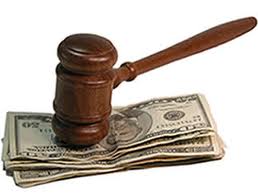
lt’s easy to forget that each state has its own anti-trust statutes, in addition to the anti-trust laws of the federal government. Aside from the federal anti-trust case, Macmillan has been sued by a number of states for price fixing—basically the same thing they were accused of by the feds. Macmillan has settled with the 33 states bringing suit and the tab is $20 million. This settlement also encompasses a class-action lawsuit brought by a law firm on behalf of ebook purchasers everywhere. In addition to this $20 million, a pot of $69 million has been created based on settlements by HarperCollins ($19.5 million), Hachette ($31.7 million), and Simon & Schuster ($17.7 million). Penguin and Apple, who have also been sued, have not settled yet.
Now what happens to the consumer? We don’t know. This money is supposed to be refunded to ebook purchasers, but how this is going to be done is still a mystery. One can imagine that managing such refunds will be a logistical nightmare. Is every ebook purchaser supposed to remember exactly what ebook they purchased from what vendor and when? We don’t know. I think it will be a while before anyone sees any money as a result of either the federal or the state settlements.
